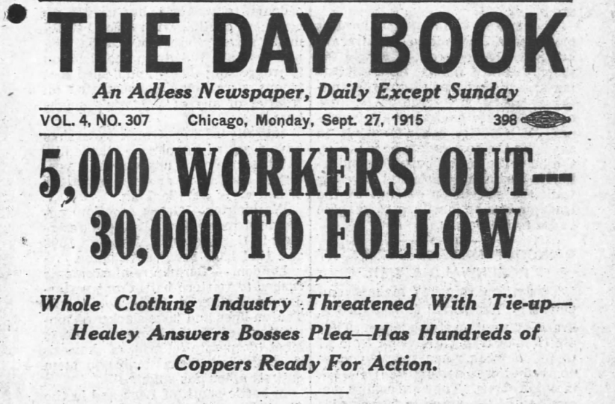Chicago Garment Workers Strike (1915)
Mon Sep 27, 1915

Image: *Chicago newspaper "The Day Book" headline on September 27th, 1915, reading: "5,000 WORKERS OUT
30,000 TO FOLLOW Whole Clothing Industry Threatened With Tie-up - Healy Answers Bosses Demands - Has Hundreds of Coppers Ready for Action."*
On this day in 1915, 5,000 garment workers in Chicago walked out on strike, demanding a 48 hour work-week, overtime pay, union recognition, a wage increase, and an end to blacklisting. By the 29th, more than 25,000 workers were striking.
On September 14th, a meeting of approximately 5,000 garment workers in Chicago agreed on a list of demands to send to their employers and to collectively go on strike on September 27th if their demands were not met.
The demands included a 48 hour work-week, overtime pay, union recognition, a wage increase, and an end to blacklisting practices. Management not only did not meet the demands, they refused to negotiate with the workers entirely and pre-emptively requested police protection of their factories.
On September 27th, as planned, 5,000 garment workers walked out on strike. By September 29th, the amount of workers out had grown to 25,000. The strike was plagued with violence and police brutality, and multiple attempts by the city government to arbitrate the strike failed.
The labor action finally ended on December 12th, 1915 and, while the workers' union was not recognized, they won some of the demands from their employers.